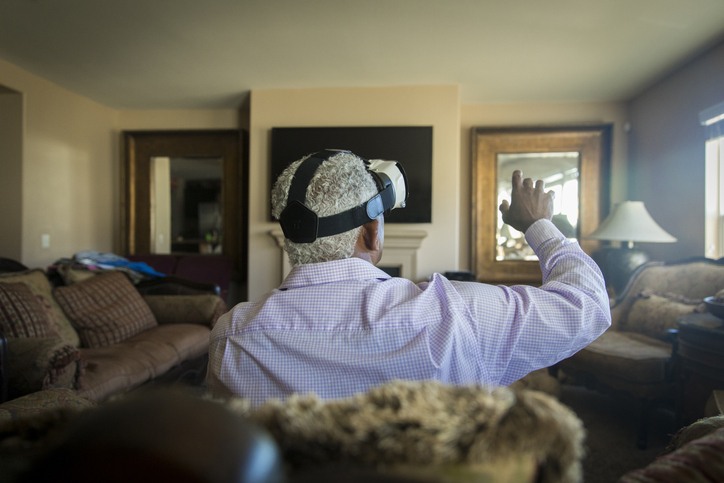Why Virtual Reality and Podcasts Will Revolutionize the Healthcare Marketing… Leave a comment


The healthcare industry constantly evolves, with new technologies and innovations emerging regularly. This dynamic environment requires healthcare marketers to stay on top of changing trends to create effective campaigns. One of the latest trends is virtual reality (VR) and podcasts in healthcare marketing.
These cutting-edge tools give healthcare marketers unique opportunities to engage their target audience in exciting and impactful ways. From immersive experiences to informative podcasts, VR and podcasts can potentially transform how healthcare companies connect with their audience. In this article, we will explore why incorporating VR and podcasts into your healthcare marketing strategy is brilliant.
Benefits of virtual reality and podcasts
- Newer way to collect human behavioral data
Conducting market research is essential in developing an effective healthcare marketing strategy. Virtual reality technologies added new dimensions to it. Marketers can now study human behavior with the help of VR technology and collect in-depth information.
VR technology can also track eyes in simulations. It’s a creative way of tracking respondents’ subconscious behavior through eye movements. Learning others’ perspectives and experiences through VR simulations is much easier.
- Develop virtual reality experiences
Virtual Reality (VR) technology in healthcare marketing has immense potential for providing an immersive experience to showcase services, facilities, and expertise. For example, hospitals and clinics can use VR technology to take patients on virtual tours of their facilities, allowing them to familiarize themselves with the layout and understand what to expect during their visit. Similarly, medical professionals can use VR simulations to demonstrate complex medical procedures to patients, improving patient education and engagement.
Moreover, VR technology enables healthcare providers to create digital prototypes of medical devices. This can be useful for demonstrating how medical devices work, training healthcare professionals on using them, and even allowing patients to practice using them in a virtual environment. Healthcare providers can reduce costs and save time by providing patients with an immersive experience of their hospital environment and medical procedures. This is because patients who are more familiar and comfortable with their surroundings will likely experience less anxiety, require less medication, and have shorter hospital stays.
- Improve based on feedback and analysis
Finally, it is essential to use feedback and analysis to improve your healthcare marketing strategy. Metrics can help you identify areas for improvement and make changes to your strategy.
If your VR experience is not getting enough engagement, you may need to improve the quality or promote it more effectively on social media. Similarly, if your podcast series is not getting enough downloads, you may need to create more engaging content or promote it to a broader audience.
You can create social media posts that showcase your VR experience, provide links to your podcast series, and offer discounts or promotions to patients who engage with your brand.
- Measure success using metrics
Using KPIs (like customer satisfaction, lead generation, and conversion rates) to measure success is crucial for healthcare marketing strategy. For example, you can track the number of patients who engage with your VR experience or the number of downloads of your podcast series. This will help you determine if your marketing strategy is effective or if you need to make changes.
- Podcasts emerged in popularity with loyal audiences
Podcast listeners are an ideal audience for promoting healthcare brands. More than half, about 54% of listeners, consider brands after hearing an advertisement during podcasts. It’s an effective option if you plan to create brand awareness through podcasts. According to a study, podcasts can increase brand awareness between 24% to 79%. This ratio outperforms digital display, print, and linear TV, which lifts brand awareness by an average of 2.6%.
Promote your healthcare brand
To effectively promote your healthcare brand, exploring different marketing strategies is important. One approach that can be highly effective is to incorporate digital PR services into your marketing efforts. Virtual reality and podcasts are two innovative tools that can help captivate your audience and differentiate your healthcare brand. By utilizing these cutting-edge technologies, you can stay ahead of the competition and create more engaging marketing campaigns.
Photo: adamkaz, Getty Images


